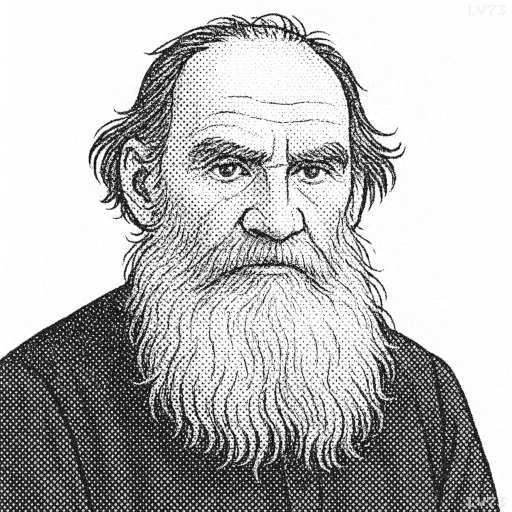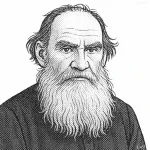“The changes in our life must come from the impossibility to live otherwise than according to the demands of our conscience not from our mental resolution to try a new form of life.”

- September 9, 1828 – November 20, 1910
- Born in Russia
- Writer, philosopher
table of contents
Quote
“The changes in our life must come from the impossibility to live otherwise than according to the demands of our conscience not from our mental resolution to try a new form of life.”
Explanation
In this quote, Leo Tolstoy emphasizes that true change in life should arise not from a mere intellectual decision or resolution, but from a deep inner necessity to live in alignment with one’s conscience. He suggests that authentic transformation occurs when we are compelled by our moral values and spiritual understanding, not when we simply try to adopt a new lifestyle or approach based on intellectual reasoning alone. Tolstoy is pointing to the moral and emotional force behind meaningful change, which cannot be achieved simply by deciding to live differently—it must come from an inner realization that living otherwise would be impossible or unbearable because it goes against one’s conscience and sense of right.
This idea resonates deeply in the modern world, where people often make resolutions to change—whether it’s adopting healthier habits, changing careers, or pursuing personal growth—yet these changes are often short-lived because they lack the internal commitment and moral clarity necessary for lasting transformation. Tolstoy’s view suggests that true change is driven by a profound inner shift in values, not by external pressures or superficial intentions. It is the result of a deep moral awakening that makes it impossible to continue living in the same way, as the conscience demands a different course of action.
Tolstoy’s own life was shaped by such a profound internal transformation. Later in life, he underwent a spiritual crisis that led him to reject the materialism and privilege of his earlier existence, seeking instead a life of simplicity, self-discipline, and moral integrity aligned with his Christian beliefs. This quote reflects his view that true moral and spiritual change comes not from external resolutions or trends, but from an inner awakening to the demands of the conscience. The quote serves as a reminder that lasting change is rooted in genuine inner conviction, and that we must be guided by moral clarity in our decisions, not by temporary desires or mental goals.
Would you like to share your impressions or related stories about this quote in the comments section?




